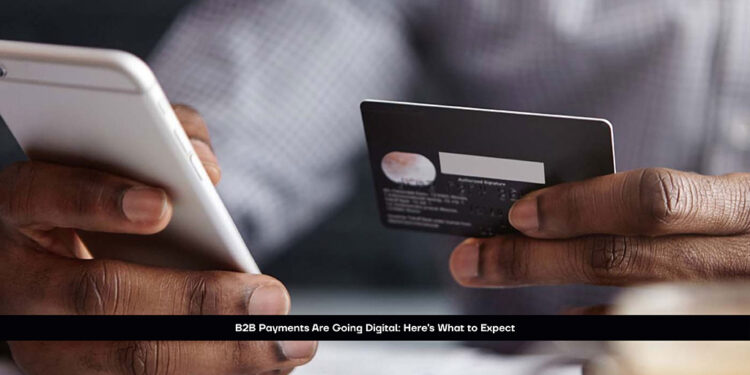The world of B2B payments is undergoing a major transformation as businesses move away from traditional payment methods like paper checks and manual invoicing. Digital solutions are becoming the new standard, driven by the need for greater speed, transparency, and efficiency. Companies are adopting technologies that allow real-time tracking, automated reconciliation, and enhanced cash flow visibility. As more organizations embrace digitization, they’re also aligning their payment systems with evolving customer expectations. This shift isn’t just about modernization—it’s about staying competitive in a business environment that demands agility and accuracy. The future of B2B transactions is digital, and companies that adapt early will be best positioned for long-term success.
One of the key drivers behind the move to digital B2B payments is the inefficiency of legacy systems. Manual processes are slow, error-prone, and costly, often leading to late payments, poor supplier relationships, and cash flow complications. Digital platforms, on the other hand, streamline these transactions by automating invoice processing, approvals, and settlements. They also offer enhanced data accuracy and better audit trails, reducing the risks of fraud and compliance issues. By moving to cloud-based payment platforms, businesses gain access to real-time financial data, enabling faster, data-driven decision-making and more effective cash management.
As B2B payments go digital, one noticeable trend is the growing use of Application Programming Interfaces (APIs). APIs enable seamless integration between payment systems and other enterprise tools such as ERP, CRM, and accounting software. This allows businesses to automate end-to-end payment workflows, reduce manual intervention, and minimize delays. Additionally, APIs facilitate better communication between buyers and suppliers by providing real-time payment status updates. This transparency helps build trust and improves working relationships. With the added benefit of scalability, APIs are proving crucial in helping companies manage growing transaction volumes while maintaining accuracy and control.
Security is another area where digital B2B payments offer substantial improvements. Traditional methods like paper checks are susceptible to fraud, theft, and errors. Modern digital payment systems come equipped with strong encryption, multi-factor authentication, and advanced fraud detection tools. These security measures not only protect sensitive financial data but also ensure compliance with regulatory standards. With cybersecurity threats on the rise, digital payment platforms offer peace of mind for businesses looking to safeguard their operations. Moreover, secure and traceable payments enhance transparency across the supply chain, ensuring accountability and reducing the potential for disputes or payment mismatches.
Cross-border transactions are also benefiting from digital innovation in B2B payments. In the past, international payments were slow, expensive, and complicated due to varying banking systems, currencies, and regulations. Fintech platforms are now enabling faster and more affordable cross-border payments through digital wallets, blockchain technology, and real-time foreign exchange services. These tools help businesses expand globally without the traditional financial friction. Faster settlement times and reduced transaction fees mean companies can manage their international suppliers more efficiently. Digital solutions make it possible to execute global strategies while keeping financial operations lean and responsive to market changes.
Another emerging trend is the integration of data analytics into digital payment systems. By leveraging insights from payment data, companies can optimize working capital, predict cash flow patterns, and improve financial forecasting. Analytics tools can also help identify spending inefficiencies, monitor supplier performance, and streamline budgeting processes. For CFOs and finance teams, this level of visibility is invaluable. Digital B2B payment solutions are not just tools for executing transactions—they’re strategic assets that enhance overall financial management. As businesses face increasing economic uncertainty, having precise control over financial operations becomes a major competitive advantage.
In conclusion, the digitization of B2B payments is more than a technological upgrade—it represents a fundamental shift in how businesses operate. Faster processing, enhanced security, real-time data, and global reach are just a few of the advantages that digital payment platforms offer. Companies that adopt these solutions can expect improved efficiency, better supplier relationships, and stronger financial oversight. As more organizations make the transition, digital payments will become the norm rather than the exception. For businesses that want to lead rather than lag behind, embracing the digital transformation of B2B payments is no longer optional—it’s essential.















 The Inc Media is one of the most renowned global Online Business Magazines, that carries news stories about entrepreneurship, small business management, and business. Being a global business magazine, we carve for influential stories and try to take them globally to uplift the business standards and educate the people about new innovations in the business world...
The Inc Media is one of the most renowned global Online Business Magazines, that carries news stories about entrepreneurship, small business management, and business. Being a global business magazine, we carve for influential stories and try to take them globally to uplift the business standards and educate the people about new innovations in the business world...